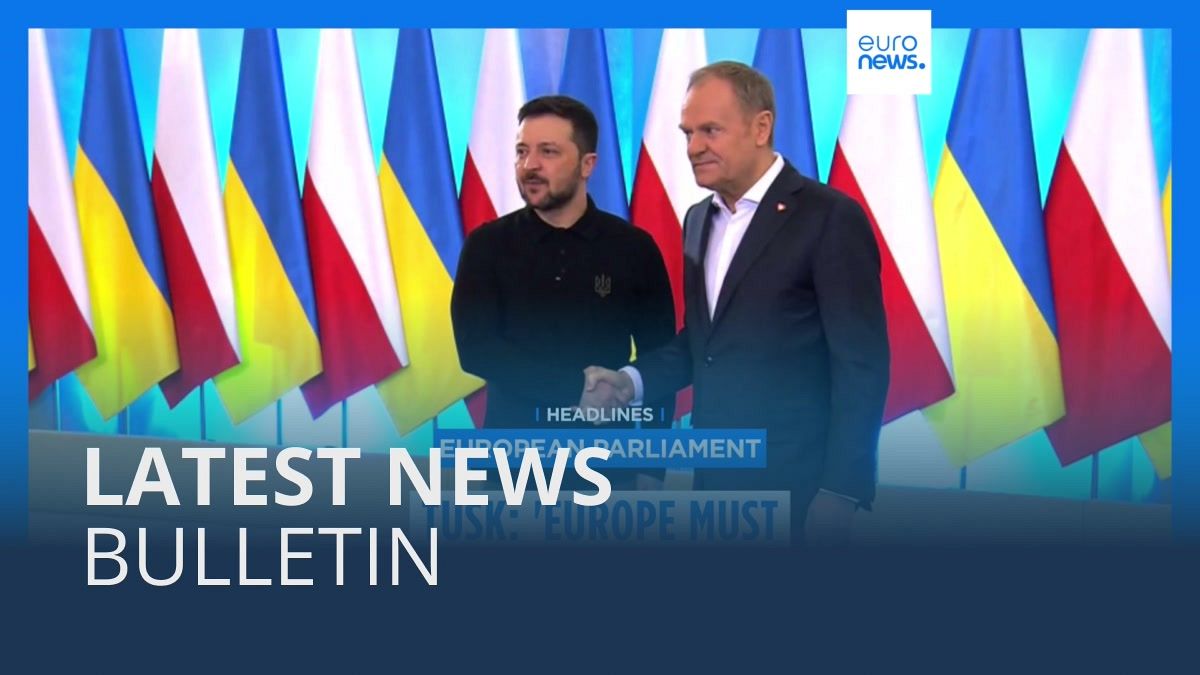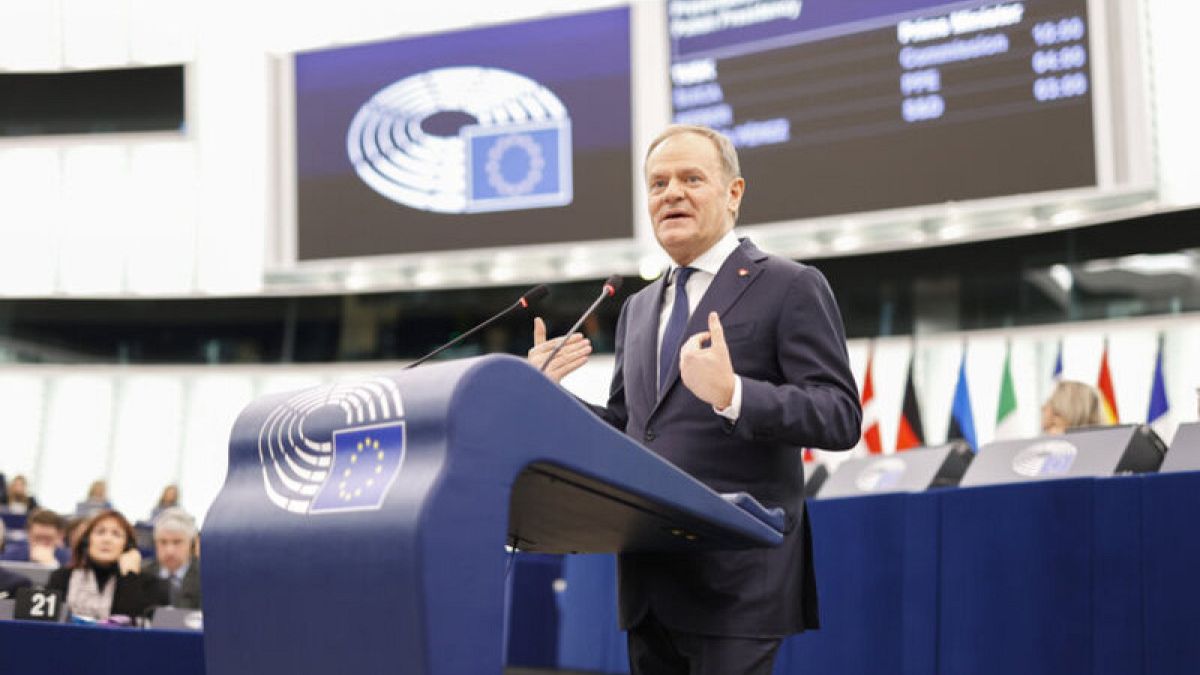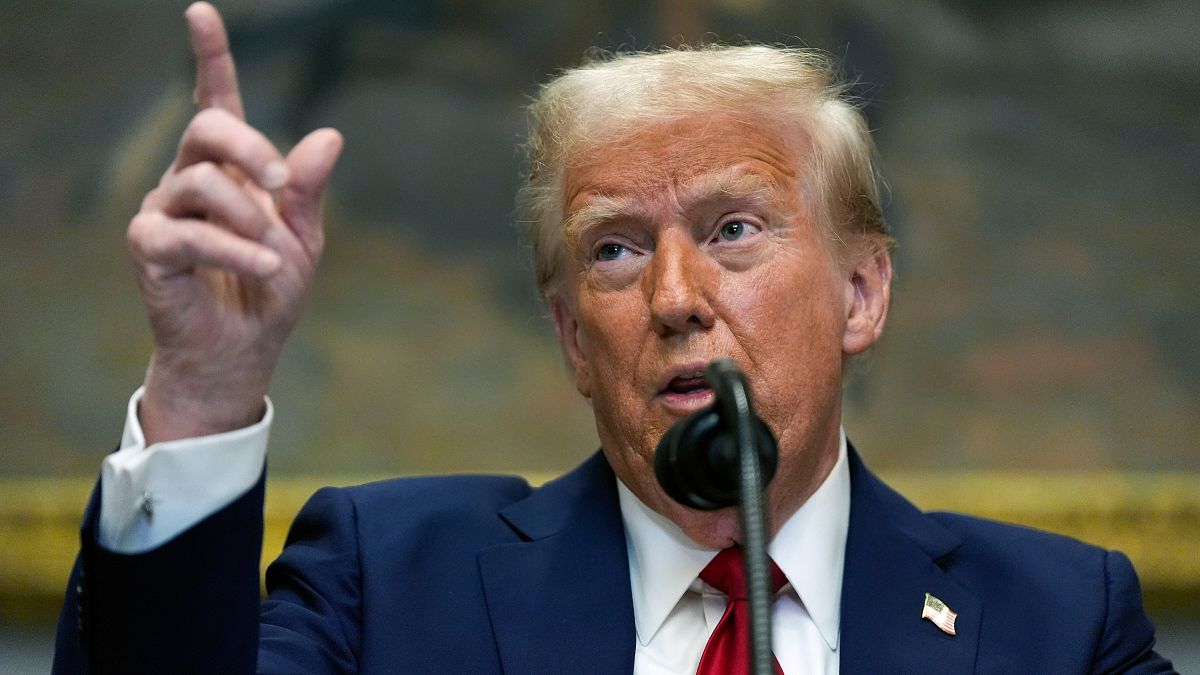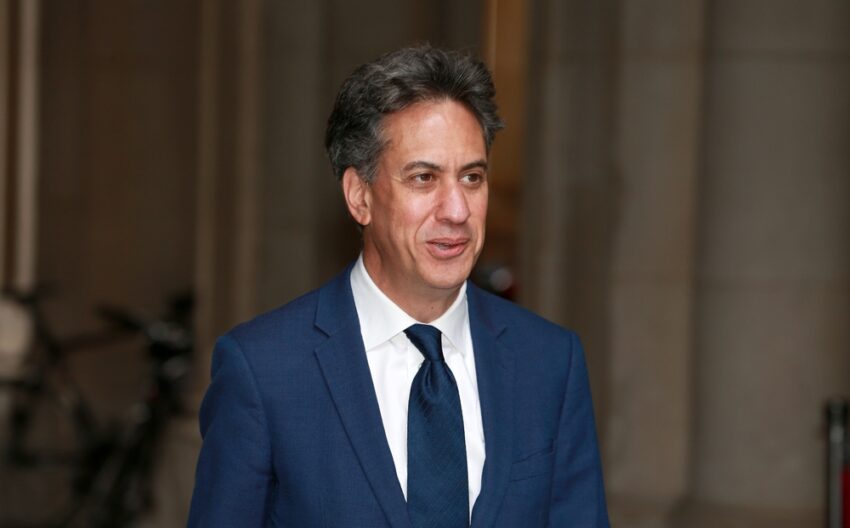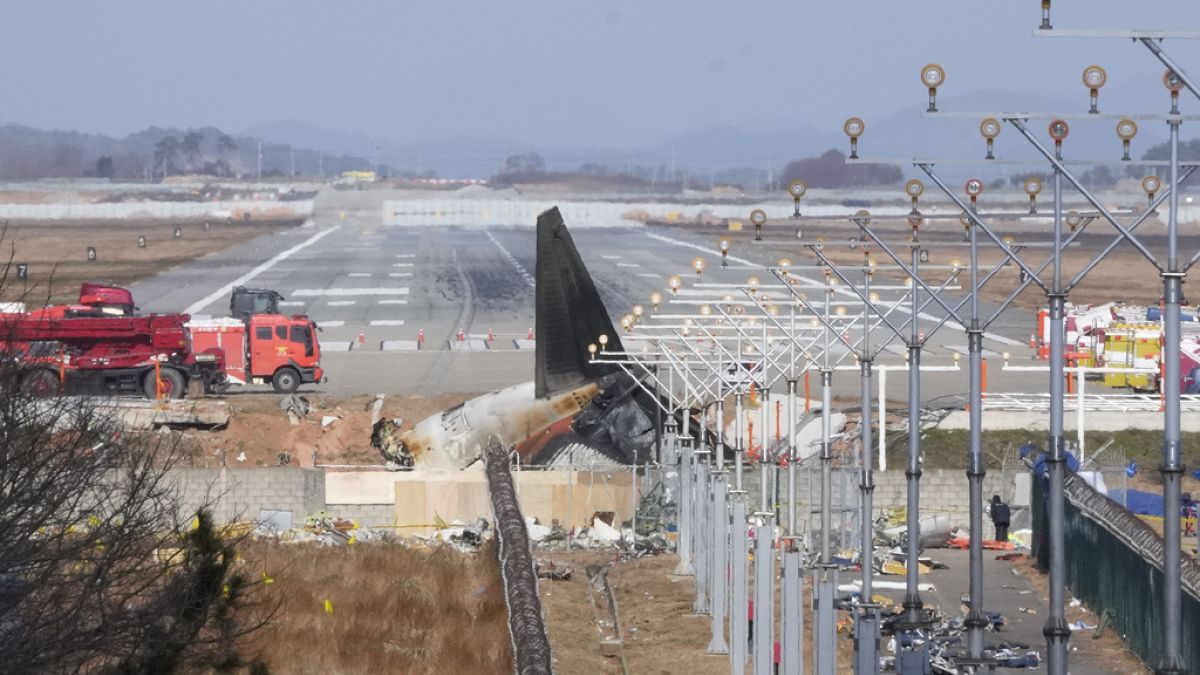5 things to know about defense chief Andrius Kubilius’s European Parliament hearing
New defense commissioner warned of Russian threat, underlined America's distraction with China, and pushed the EU to spend big on protecting itself.
BRUSSELS — Forget Donald Trump: Europe’s need to ramp up on defense is all about Vladimir Putin.
So says two-time Lithuanian Prime Minister Andrius Kubilius, who persuaded the European Parliament to approve his candidacy to be the bloc’s first defense and space commissioner on Wednesday by insisting it’s time to get real about the threat from Moscow.
“[The] Russians can produce [within] six months everything that Germany has in their stocks,” he said at the outset of a three-hour grilling by MEPs. “That should be a warning signal to all of us.”
While insisting he should be known as the “peace” commissioner, given that strengthening the bloc’s military deterrence capabilities will be central to his job, in reality Kubilius will be the cheerleader-in-chief for the defense industry over the next five years by helping source fresh investment, clear red tape, and ensuring that strategies match with the cash available.
The European Union needs to spend far more — and far more effectively — on its defense, he said, using expertise from NATO to define areas where the bloc is lagging, and committing to get member countries to jointly buy tanks, ammo and missiles.
“We need to spend more — not because that is a demand from President Trump, but because of Putin,” he told MEPs.
Here’s our distillation of three hours of discourse with lawmakers:
1. Spend more. Much more.
It’s not just about shifting financing from elsewhere in the EU budget to pay for extra guns, Kubilius said of the need to source significant extra investment.
The veteran MEP made it clear that he was expecting “substantially larger financing lines both for defense and space” in the EU budget that starts in 2028, compared to the last time around.
When talks get underway next year on the coming seven-year spending plan, he said, he will be ready to fight to close a significant gap with the U.S. on defense procurement.
Doing so will be a challenge, of course. Plans for a €500 billion air-defense system covering the entire EU will need to be discussed among capitals, who need to say how much they’re willing to commit to such an endeavor. There’s also a plan for a land defense network across the bloc’s eastern flank that will require billions in further investment.
But it doesn’t end there. Kubilius estimated that some €200 billion will be needed in the next decade for upgrades to allow tanks and troops to be moved across the EU with ease on roads and railways.

That contextualizes the comparatively puny €1.5 billion that will soon be in play as part of the European Defense Investment Programme. “If we want to defend ourselves, we need to spend at least €10 billion up to 2028,” Kubilius said.
That kind of mismatch tees up difficult conversations about long-term ambitions.
“We need to discuss — but that is perhaps for NATO, we can ask NATO to discuss — [whether] the 2 percent target [is] enough,” Kubilius said of the overarching need for capitals to spend a greater share of their GDP on defense. “From my point of view, it is not enough.”
Just meeting the NATO target would help, he noted: “If every EU state spent 2 percent on defense right now, that would work out at an extra €60 billion per year.”
The former Lithuanian PM did not, however mention the controversial idea of raising joint EU debt to boost the bloc’s military contractors.
2. Learn from Ukraine
The EU can learn a thing or two from Ukraine when it comes to arms production, Kubilius told MEPs.
Claiming that self-propelled howitzers, workhorses in the Ukraine war, would be half-price if they were made in Ukraine because of lower production costs, Kubilius stressed that on everything from high-tech drones to artillery, the EU can learn much from the “miracles” being performed by Ukraine’s nascent arms industry.
The Danish model, in which a Western ally pays for arms production inside Ukraine and then donates the output to Kyiv, is an effective way to build production capacity and aid the war effort against Russia, he said.
“To have industrial capacity on our soil is a must, is crucial.”
3. Play nice with NATO
Don’t worry, Kubilius knows there won’t be any trouble with NATO’s new Secretary-General Mark Rutte.
Tension has been brewing in recent months as the European Commission’s increasing focus on defense has rubbed up against NATO’s military planning role at its headquarters across town in Brussels.
The risk of duplication even prompted ex-NATO Secretary-General Jens Stoltenberg to issue an unusually bold warning about overlapping interests earlier this year.

“Don’t expect any competition between myself and NATO,” Kubilius said. “Where the EU can be of assistance … is … on the development of resources for [the] development of defense plans. We can raise money … that is what NATO cannot do.”
“With the resources we have now, in the 10 days we’d spend waiting for NATO to come and help us, we’d be occupied,” he added.
Referencing reports that NATO believes Europe needs an extra 1,500 tanks, he said those are the kind of blueprints that can guide EU investment. “We need to take NATO’s defense plans and [see] what it means in practical terms,” he said.
4. Get a piece of the space economy
If the EU wants a bite of a trillion-euro space economy, it needs to rethink how it manages its space programs, Kubilius said.
In addition to GPS-alternative Galileo and Earth observation network Copernicus, Kubilius should sign off on contracts for the IRIS² system in December, as a European alternative to Elon Musk’s Starlink military-grade satellite constellation.
That will require extra financing in the next EU budget as well. Kubilius said he’ll work on boosting rocket competition in Europe by getting smaller players off the ground to line up against the Ariane 6 rocket.
5. Regulating orbit
What’s more, he’ll publish an EU space law to promote global standards for the thousands of satellites in orbit; foster the space data economy; and shore up the defense of EU space assets for “the most extreme military contingencies.”
The space law will be a big part of his legislative agenda through 2025, Kubilius said, and will likely set out standards to curb light pollution caused by mega satellite constellations and limit greenhouse gas emissions and pollution caused by rocket launches.
The EU currently spends around €2 billion a year on space, he said, but just keeping services running at existing programs like Galileo will require “much more substantial finances” from the budget — so expect more fuss around space spending in the coming months
“Space remains underused in defense,” he added.
What's Your Reaction?







